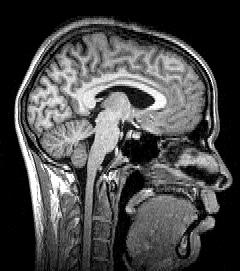A man with a rare disease has shown scientists that there might be another way to try to stop the damage of Alzheimer’s disease. A mutation of the apolipoprotein E gene (apoE4) has been shown to raise the chances of developing Alzheimer’s disease, and experts have wondered how dangerous it would be to treat patients by eliminating the protein from the brain. Researchers now report that the answer might lie in the unusual case of an ill man whose body does not produce the protein at all. His lack of protein doesn’t appear to have hurt his brain. This medical fact may mean that lowering levels of the protein in the brain “may provide a wholly new venue for intervention in Alzheimer’s disease. Our observations on this patient suggest that this strategy may now be entertained seriously,” said study co-author Dr. Mary Malloy. She mentioned that patients with Parkinson’s disease and even brain injuries from concussion could benefit from the finding since it seems to apply to other kinds of brain disorders.
ApoE4 “chaperones” certain kinds of proteins out of the brain and a genetic mutation connected to the protein increases the risk of Alzheimer’s disease. The mutation is found in 25% to 30% of people overall and 40% of those with late-onset Alzheimer’s, according to the U.S. National Institute on Aging. One type of treatment might be to eliminate the protein in the brain to treat patients with Alzheimer’s disease, and studies in animals have suggested this approach might work, said Dr. Joachim Herz.
To find answers, the study authors turned to a 40-year-old man who sought treatment for an unusual disorder at UC San Francisco. He did not have any apoE and suffers from dysbetalipoproteinemia, which is a condition that disrupts the body’s processing of cholesterol and causes painful growths known as xanthomas, when fat gathers under the skin. While the man is at a higher risk of heart disease, he does appear to be “cognitively normal”, meaning that his brain is working properly. “The findings in this patient indicate that completely removing apoE would have no overt ill effects on brain function, and so an Alzheimer’s treatment that reduced brain apoE would theoretically have no or little cognitive side effects,” Herz said.
There are some caveats to the research. The patient is 40 and it is not clear yet how aging will affect his brain functioning. However, scientists are already working on a drug to lower the levels of the protein in humans. Research is in its early stages.
Resource: http://www.cbsnews.com/news/mans-rare-condition-may-lead-to-new-alzheimers-treatments/




